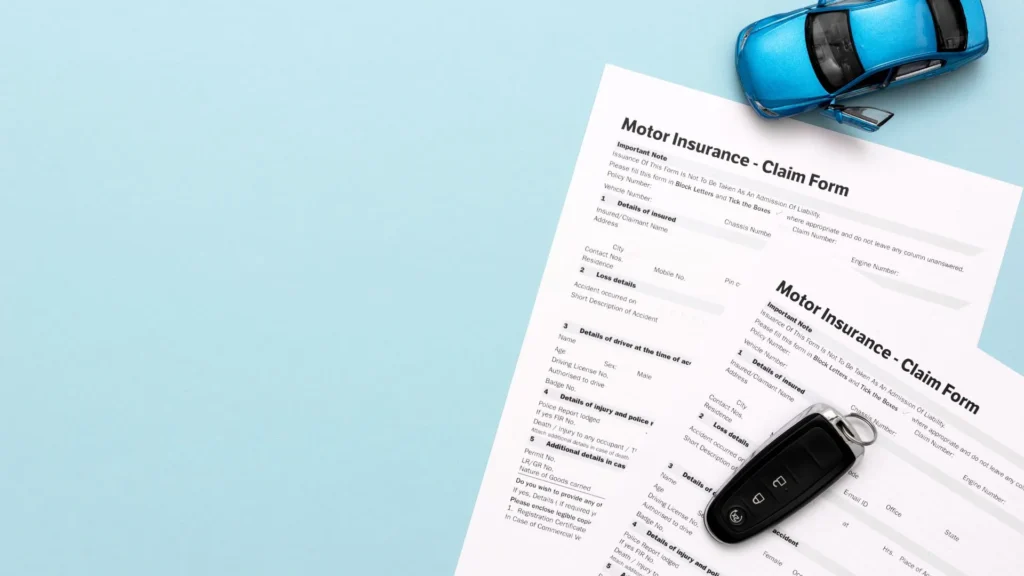Securing insurance coverage for your beloved car, guarding it against unforeseen damage and pesky theft, is an absolute must for your financial peace of mind. Yet, in the wild realm of auto insurance, a lurking danger could pounce on you even before you hit the first 100 miles on your odometer. While insurance against damage and theft is critical for financial security, fraud and scams could be a potential threat. So, how to deal with car insurance fraud and scams?
Insurance fraud and scams are the second-most expensive type of white-collar crime in the United States. They incur billions of dollars in damages every year, as per estimates by the National Insurance Crime Bureau (NICB). This Beem guide will provide tips on how to deal with car insurance fraud and scams in your region. It is important to compare quotes from different providers before buying the policy. Use Beem’s online comparison tool to find the best policy for your needs.
also know about: insurance cover a stolen car
Different Types of Car Insurance Fraud and Scams
Scammers see automobile insurance as an opportunity to exploit customers’ ignorance, lying, or exaggerating to scam thousands of dollars from car owners and insurance providers. Here are some of the most common types of car insurance fraud and scams:
Staged Accidents
Fraudsters intentionally cause accidents to make false insurance claims. They may brake suddenly in front of your car, flash their headlights to make you yield the right of way, or even intentionally collide with you at low speeds.
Fake Injuries
Some individuals stage accidents to make fraudulent injury claims, often exaggerating their injuries or falsely claiming they were present during an accident when they were not.
Exaggerated Claims
After a genuine accident, some dishonest policyholders may exaggerate their damages or the cost of repairs to receive higher payouts from their insurance companies.
Phony Insurance Companies
Scammers may pose as legitimate insurance providers and offer unrealistically low premiums to attract customers. However, they disappear after collecting payments, leaving victims uninsured.
Identity Theft
Criminals may use stolen personal information to buy car insurance policies, make claims for non-existent accidents, and vanish before the fraud is discovered.
How to Deal with Car Insurance Fraud and Scams?
Fortunately, various organizations are committed to detecting and exposing car insurance fraud and scams, such as the NAIC (National Association of Insurance Commissioners) and the NICB, among other organizations.
If you have experienced damages due to a scam and have proper documentation, you may have the option to pursue legal action against the scam artist. However, it’s essential to consult with a lawyer first to assess the likelihood of success and whether it’s worth the time and effort. Here’s a simple guide to help you file your complaint against car insurance fraud and scams:
Gather Evidence
After an accident, if you suspect fraud or feel something is amiss, take photos of the scene, the involved vehicles, and the people present. Note down any suspicious behavior or statements made by the other party.
Report to the Authorities
If you believe you have been a victim of car insurance fraud or encountered a scam, report the incident to your local law enforcement agency. They can investigate the matter and take appropriate action.
Contact Your Insurance Provider
Inform your insurance company about the incident as soon as possible. They can guide you through the claims process and further assist if fraud is suspected.
Seek Legal Help
If you suspect the other party is attempting insurance fraud, consult an attorney experienced in handling car insurance fraud cases to understand your rights and options. If you stumble across an auto insurance fraud, you must report it immediately to begin an inquiry. You may report the insurance fraud scam to a variety of organizations, including:
- The vehicle insurance company’s fraud section was implicated in the scheme.
- The National Insurance Crime Bureau (NICB) investigates insurance fraud.
- CAIF stands for Coalition Against Insurance Fraud.
- The NAIC is the National Association of Insurance Commissioners.
- Your neighborhood FBI office.
By reporting insurance fraud, you help defend the insurance system’s integrity and shield honest policyholders from the financial repercussions of fraud.
also know about: tips for buying car insurance
How to Avoid Car Insurance Fraud and Scams?
Research Insurance Companies
Before purchasing a policy, thoroughly research the insurance company’s background and ratings. Stick to well-known, reputable insurers with a proven track record.
Be Vigilant on the Road
Stay alert while driving and maintain a safe following distance. Be cautious of drivers exhibiting unusual behavior or attempting to provoke an accident.
Verify Information
When involved in an accident, exchange insurance details and verify the other party’s information. Check if the insurance company is legitimate and has a working contact number.
Protect Personal Information
Guard your personal information carefully to prevent identity theft. Shred documents containing sensitive details and avoid sharing personal data on unsecured websites.
Several tools are available to help you understand and report vehicle insurance scams and fraud. Among these resources are:
At the local or state level:
- Attorneys General from each state: Contact the attorney general of your state or territory for advice and support in filing a claim and gaining access to additional resources.
- Websites of the Highway Patrol or the State Police: To make an auto insurance fraud claim, go to the website of your state’s highway patrol or state police.
- State Insurance Regulators: Locate your state’s insurance department to have access to options for reporting vehicle insurance fraud.
- Maps of the National Association of Insurance Commissioners (NAIC): To report a dishonest insurance agent, contact your state’s insurance commissioner.
National Assets:
- FBI: Report any suspicious activity, including financial crimes such as vehicle insurance fraud, to your local FBI office for investigation.
- NICB (National Insurance Crime Bureau): Through the website of this non-profit organization, you may obtain vital information about insurance offenses and report fraud.
- International Association of Car Theft Investigators (IAATI): Professional car theft investigators and law enforcement professionals work together to combat auto theft.
- AFA (Anti-Fraud Alliance): Represents law enforcement and private business partnerships to prevent insurance fraud through training and networking.
- Fraud.org: Offers suggestions on preventing scams and reporting tools if you believe you have been a victim of fraud.
- Coalition Against Insurance Fraud: Gathers data on insurance fraud, pushes for anti-fraud legislation, and teaches the public how to spot it.
also know about: buy cheap car insurance online
Conclusion
Car insurance fraud and scams can have severe financial and legal repercussions for innocent victims. By staying informed about the various types of fraud, knowing how to deal with suspicious incidents, and taking proactive measures, you can safeguard yourself from falling victim to these deceitful practices. Remember to drive safely, remain vigilant, and trust your instincts when dealing with insurance-related matters. While managing your finances, don’t let auto insurance impact your peace of mind. Auto insurance with Beem provides coverage for damage to your vehicle, damage to other vehicles or property, and injuries to yourself or others.
Educating yourself about insurance scams may be a powerful deterrent to thieves seeking to prey on you. By remaining informed, you can protect your financial well-being and contribute to a fair and trustworthy insurance system.




























